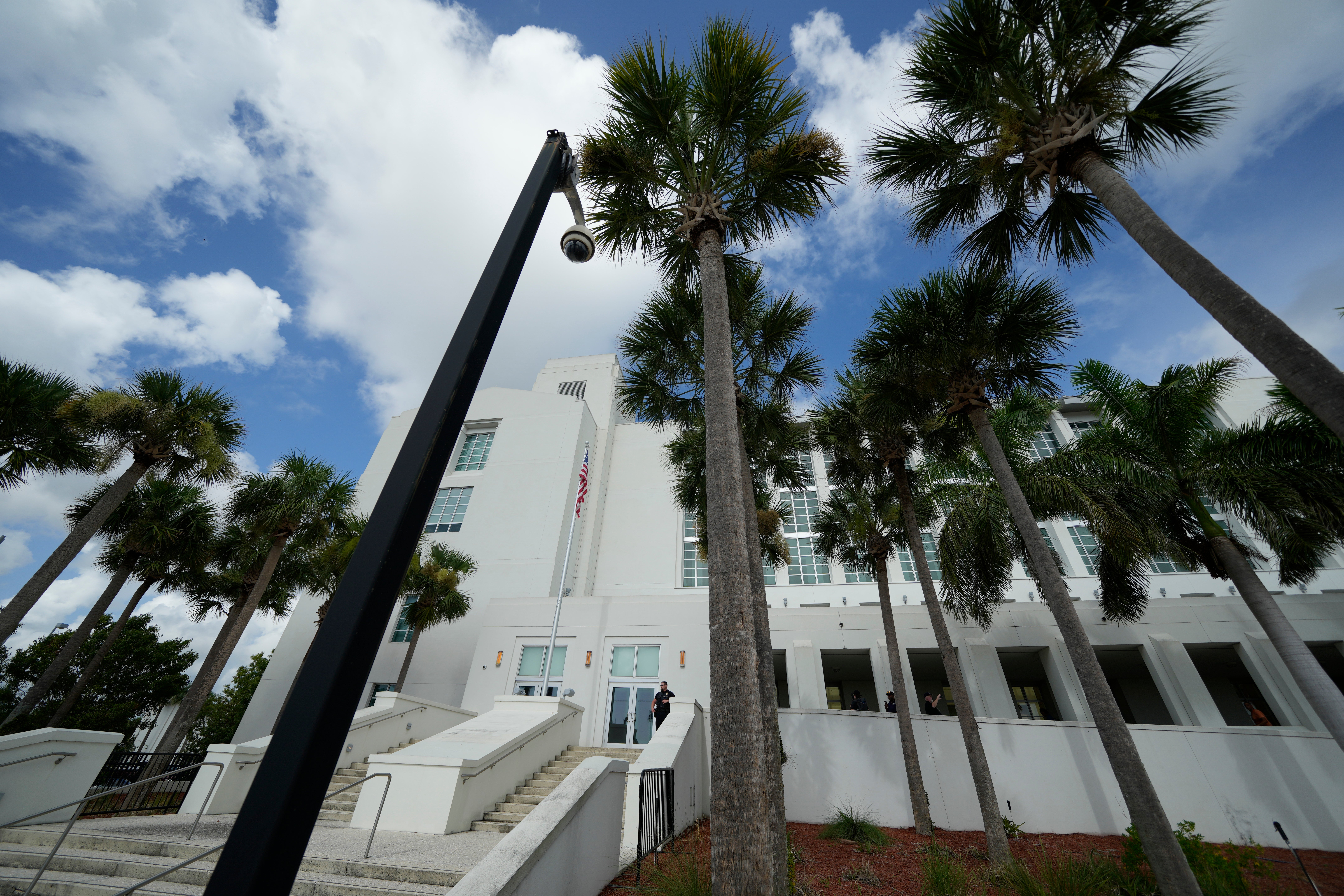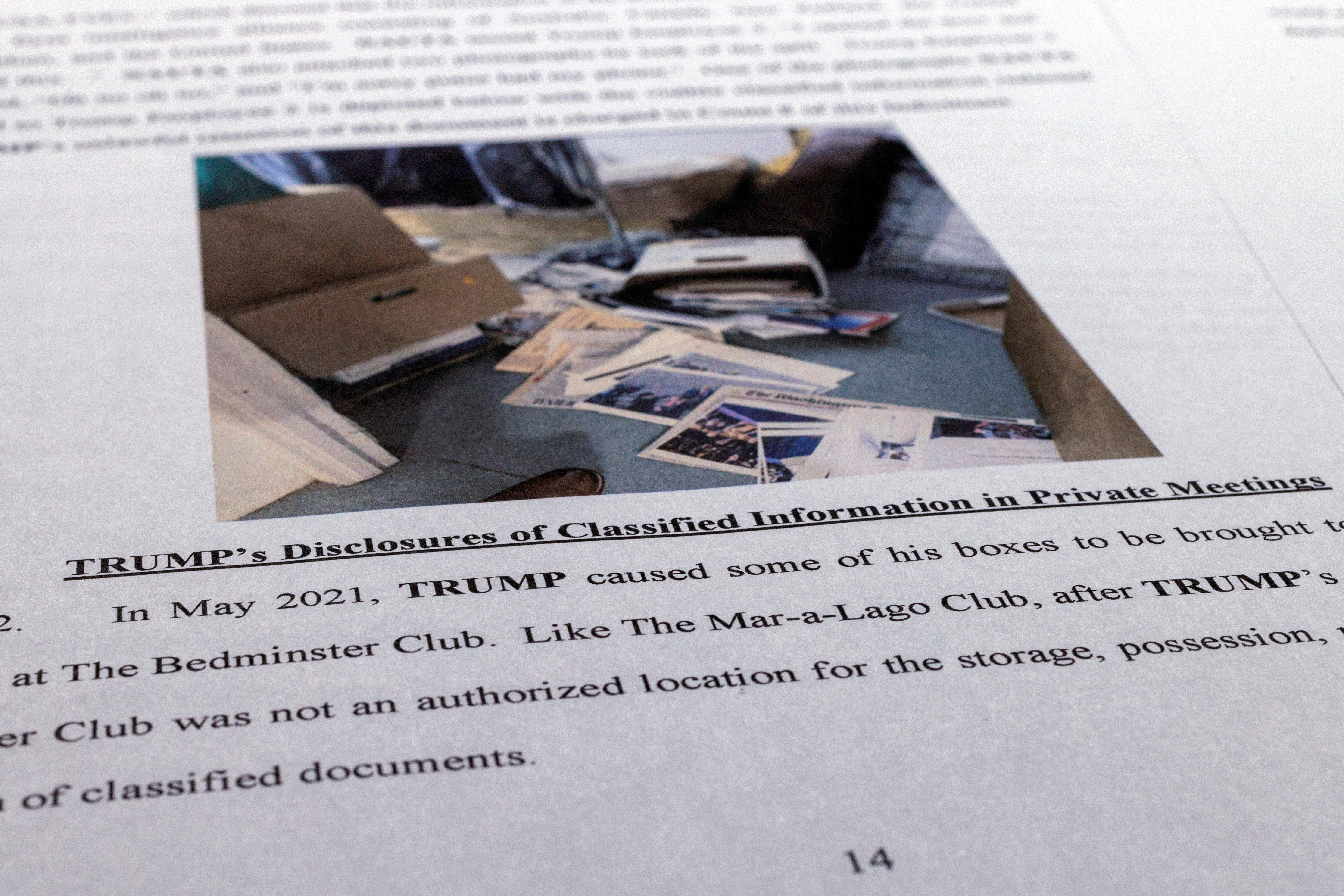Aileen Cannon: The judge who dismissed Trump’s classified documents case was appointed by him
Florida judge has come under fire for rulings seen as favourable to the former president, who nominated her to the federal bench in 2020
Your support helps us to tell the story
From reproductive rights to climate change to Big Tech, The Independent is on the ground when the story is developing. Whether it's investigating the financials of Elon Musk's pro-Trump PAC or producing our latest documentary, 'The A Word', which shines a light on the American women fighting for reproductive rights, we know how important it is to parse out the facts from the messaging.
At such a critical moment in US history, we need reporters on the ground. Your donation allows us to keep sending journalists to speak to both sides of the story.
The Independent is trusted by Americans across the entire political spectrum. And unlike many other quality news outlets, we choose not to lock Americans out of our reporting and analysis with paywalls. We believe quality journalism should be available to everyone, paid for by those who can afford it.
Your support makes all the difference.The Florida district judge who dismissed Donald Trump’s classified documents case has attracted no shortage of criticism given a series of controversial rulings — and the fact that it was Trump himself who elevated her to the bench.
Aileen Cannon is the federal judge with the US District Court for the Southern District of Florida who oversaw the Espionage Act and obstruction of justice case against Trump, who was charged with the illegal possession of classified documents at his Florida estate after leaving the White House in January 2021 and for impeding efforts by the US government to reclaim them.
The case was dismissed by Cannon in a court order on July 15 after she ruled that the appointment of special counsel Jack Smith violated the Constitution.
Cannon wrote in the order: “In the end, it seems the Executive’s growing comfort in appointing ‘regulatory’ special counsels in the more recent era has followed an ad hoc pattern with little judicial scrutiny.”
Prosecutors are expected to appeal the ruling.
According to the indictment, Trump attempted to hide boxes of classified documents following a grand jury subpoena that ordered their return. Trump’s aide Walt Nauta and Mar-a-Lago property manager Carlos de Oliveira were also indicted and have also had their charges dismissed.
Trump previously insisted that he is “an innocent man” in angry statements and postings to Truth Social, alleging that he was the victim of “rabid wolves” and the “weaponization” of the justice system by the “corrupt” Biden administration, even as the indictment revealed photos of boxes of files stacked high in the glitzy ballrooms and bathrooms of his Mar-a-Lago estate in Palm Beach.
Angela Noble, the court’s chief clerk, insisted that “normal procedures were followed” in assigning Cannon to the case.
However, Cannon came under fire for delivering rulings widely considered favorable to Trump throughout the investigation into the classified documents.
After the FBI executed a search warrant in August 2022 to enter Mar-a-Lago and search for classified documents, lawyers for Trump filed a complaint arguing that the search had been illegitimate and unconstitutional.

Cannon subsequently issued an order prohibiting the US government from “further review and use of any of the materials” seized from Mar-a-Lago “for criminal investigative purposes.”
The ruling attracted concern in legal circles as an unprecedented instance of a federal judge assuming the authority to halt a pre-indictment criminal investigation into a suspect. It was later reversed by the US Court of Appeals for the 11th Circuit.
In 2022, Cannon also sided with Trump’s request that an independent special master be appointed to review the documents before they could be examined by the Justice Department, a decision that was branded “deeply flawed” by Trump’s own former attorney general Bill Barr.
After appointing special master Raymond Dearie, Cannon then overruled a number of his procedural proposals and sided with Trump’s attorneys on several key points.
The appeals court ruled that Cannon had “improperly exercised equitable jurisdiction” and directed her to stand down from the case.
Slate legal analyst Mark Joseph Stern called that decision “one of the most humiliating appellate smackdowns in recent history, a total demolition of literally every action that Cannon had taken from the outset of the case,” also labeling the judge “a venal mediocrity.”
On March 14, Trump joined his attorneys in federal court in Florida for a hearing on his attempts to throw out the criminal charges in the classified documents case.
In two of their motions to dismiss the case, lawyers for the former president argued that his charges under the Espionage Act are unconstitutionally “vague” and that the Presidential Records Act protects him from prosecution.

Trump’s attorneys argued in court filings that Trump had “virtually unreviewable” authority to designate presidential records as personal ones and that the National Archives and US Department of Justice were unauthorized to retrieve records that Trump was given “unreviewable discretion” to label “personal” before he left the White House.
On March 14, Cannon suggested those arguments were “premature.”
Prosecutors with the office of the special counsel previously argued in court filings that the documents recovered from Mar-a-Lago are “indisputably presidential,” and that the Presidential Records Act would still apply to any classified information discovered at his residence. The former president was not charged with violating the PRA.

In early April, Cannon denied a motion to dismiss the case based on the PRA. Cannon noted at the time that the indictment made, “no reference to the Presidential Records Act” and that it “does not provide a pre-trial basis to dismiss.”
It was reported in mid-June that Cannon declined private requests from two federal judges that she step aside from the case after she was assigned to it.
The two more experienced South Florida judges told Cannon it would be best if she passed the case on to one of their colleagues, but she ultimately ignored that suggestion and chose to remain in charge of the proceedings, according to The New York Times.
The judges, one of whom is Southern District of Florida Chief Judge Cecilia Altonago, approached Cannon after she was assigned the case last June. Cannon’s assignment prompted concerns regarding her limited trial experience and how she had previously intervened in the Department of Justice investigation that ultimately led to Trump’s indictment.
Lawyers who work in the Southern District of Florida said that Cannon broke with general practice to delegate some pretrial motions in the documents case to a magistrate, according to The Times. In this case, that would be Judge Bruce Reinhart, who’s subordinate to Cannon but has more experience. Reinhart signed off on the 2022 FBI raid on Mar-a-Lago to recover classified documents from Trump’s residence and private club.
Afterward, Cannon appeared combative against prosecutors, was slow to take care of pretrial motions, and put the trial on hold despite both sides indicating they could be ready to begin proceedings this summer.
On July 15, she dismissed the case, arguing that Smith’s appointment violated the Constitution and “usurps” Congress’s role in funding his office.
Smith’s office is expected to appeal Cannon’s dismissal of the case, which could go all the way to the Supreme Court.
“The Court is convinced Special Counsel Smith’s prosecution ... breaches two structural cornerstones of our constitutional scheme — the role of Congress in the appointment of constitutional officers and the role of Congress in authorizing expenditures by law,” Cannon wrote in her ruling.
Cannon is of American-Cuban descent and was born in Cali, Colombia, in 1981. She was raised in Miami where she attended the Ransom Everglades School, then Duke University in Durham, North Carolina, and then the University of Michigan Law School.
She clerked for an appellate judge in Iowa for one year after graduating, then worked for the corporate law firm Gibson Dunn in Washington, DC, from 2009 to 2012, and then as a federal prosecutor in the Southern District of Florida, based out of Fort Pierce, from 2013 to 2020.
Following her nomination by Trump, she was confirmed as a federal judge by the US Senate in November 2020 in the dying days of his one-term administration.
Her appointment to the bench came just 12 years after she first qualified to practice law, the minimum experience the American Bar Association requires nominees to have.
Cannon is a registered Republican, has been a member of the conservative Federalist Society since 2005, and reportedly donated $100 to Florida governor Ron DeSantis’s gubernatorial election campaign in 2018.
Gustaf Kilander contributed to this report

Join our commenting forum
Join thought-provoking conversations, follow other Independent readers and see their replies
Comments